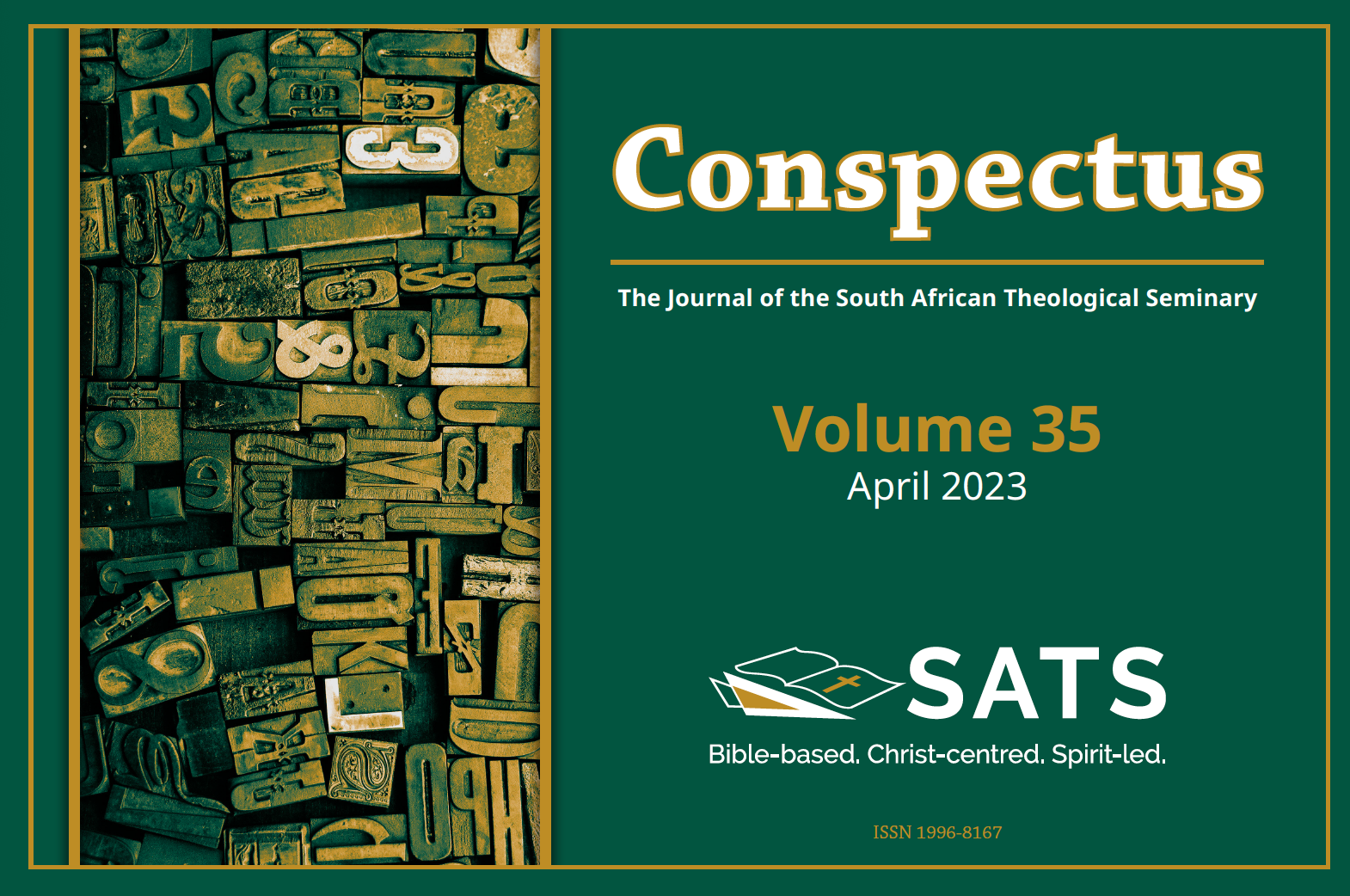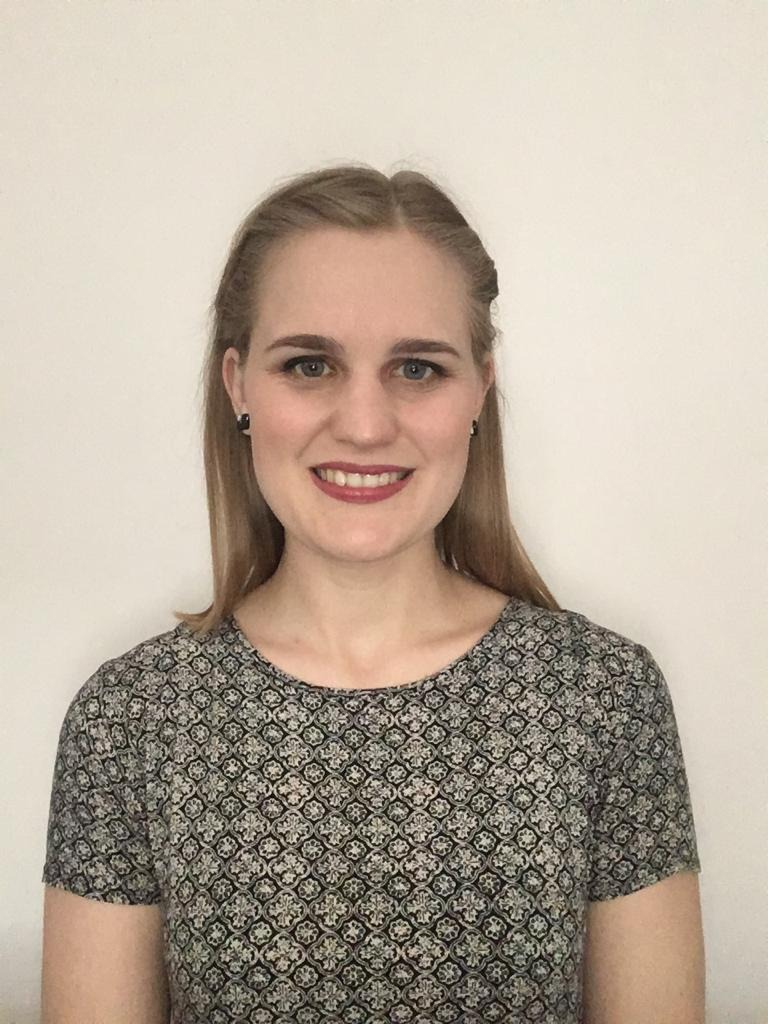Conspectus is an open access journal based in South Africa published by South African Theological Seminary. As part of our ‘Story behind the journal’ series, DOAJ spoke with the Editor, Dr Cornelia van Deventer, and the Associate Editor, Dr. Caswell Ntseno.
Tell us about the Conspectus journal and your roles within the journal
Cornelia: Conspectus is the theological journal of SATS (South African Theological Seminary). It was launched in 2006, as an open access in-house journal. Our earliest volumes only contain articles from SATS staff. Since the scope of the journal has been widened to serve the Christian church, guild, and community beyond the seminary. The journal is interdisciplinary within theology, cutting across several sub-disciplines like Biblical Studies, Systematic Theology, and Practical Theology. We are confessional and broadly evangelical, which is in line with our seminary’s ethos and mission. The heart of the journal is to produce scripturally-sound theological content which primarily serves Africa, gives a voice to African scholars, and addresses issues on our continent.
In 2020 we underwent a major change, when the previous Editor took over and I became Associate Editor. Our aim was to make the journal more professional and credible, and acquiring DHET accreditation was a big part of this aim. We re-wrote the editorial policy and author guidelines, and appointed an international Editorial Board. In 2021, I took over as Editor, with Dr Caswell Ntseno being appointed as Associative Editor. Last year, we were indexed in DOAJ, which was a huge moment for us. We’re also now accredited by the DHET, which is wonderful!
Ntseno: Yes, I took over from Cornelia as Associate Editor, and as you know when you take over a job from your boss, it means your boss knows your job! This was good though, because it allowed me to build upon the standards that were set before. The goal was to become a voice to Africa, to the global south, and for people to be able to benefit from the value of what is published. We’re very happy with the progress we’ve made from where we started.
What motivates both of you to be involved with the journal?
Ntseno: We’re both lecturers, and one of my proudest moments is when my research students would ask me: “I’m researching this area, is there anything about this in Conspectus?” For them to consider Conspectus as a voice in whatever they are doing really motivates me. We have also encouraged some research students to submit their work to our journal. This gives them good insight into what publishing in the academic world is like, and we are then able to be there for them to provide them with that extra bit of support.
It is also motivating to know that the content benefits our students—people who are not just academics in the making, but also practitioners in the church and wider society. Our students often have to straddle the balance between being pastors and researchers. We would like Conspectus to be remembered as a journal that helps them straddle that balance.
Cornelia: For me, research is my baby, and I love her! Private institutions in South Africa do not qualify for government funding—this includes our research departments. So, we are primarily motivated by the love for what we do. I also think we have a privilege of being a ‘shop window’ for our institution—the journal markets our seminary, and it is a privilege to be a part of that. We have such a wonderful and capable team, who work well together on the journal. There is also a part of me that really loves to see progress, to see our readership increase and to see our expanding reach is exciting.
How does the journal make a difference in your subject field or region?
Ntseno: I think each journal functions from the community that you’re first and foremost serving. In keeping with the requirements of DHET accreditation, SATS academics, Editorial Board members, and Review Board members can only contribute to 20% of a volume; the other 80% comes from the external community. As a journal that started as an in-house publication, working towards these ratios was tough. Additionally, our quality and rigour have increased, which makes the editorial work and peer review process a lot harder. We’ve welcomed diverse voices, ideas, and other perspectives from the evangelical community. This means we have more dialogue in our publications. Now, we get voices from everywhere, so the challenge is to make sure that we serve our evangelical community well, because we cannot try to be everything. There definitely is a balance between staying true to our evangelical convictions, and also making sure that there is freedom in research. Our hope is that Conspectus represents what the evangelical church is dealing with on the ground.

Cornelia: To add to that, for us to be open access is also a wonderful way of us serving our community, and those who cannot afford subscriptions to expensive journals. It can also be very expensive to publish, so we are very proud that our journal is free to publish in for those who do not receive government subsidies.
Have you had any pushback from your community, when you started including more voices, and perhaps including topics that could be seen as controversial?
Ntseno: Just because a topic is a little controversial, doesn’t mean it’s a topic we shouldn’t have. There are many conversations that Africa should have, and so far we haven’t had any negative pushback because there is this level of responsible arguing. Scholarship is not about irresponsible arguing, and using the pen just because you have something you want to say.
Cornelia: We do remain evangelical, which is a unique selling point that we have. We will remain true to the ethos of the journal. So, if it’s not in line with our ethos, our mission, and our scope, we will encourage publication elsewhere.
What are your thoughts on open access?
Ntseno: I am sure that when DOAJ started in 2003, you were probably questioned about it. But open access is the future. What’s the point of research, if it cannot be accessed? Researchers work so hard to contribute to conversations and the community, and then that contribution is locked. Why? It’s about affordability and about accessibility of research.
Cornelia: I couldn’t agree more. Someone needs to pay the bill when the research is done, but it shouldn’t be the reader nor the author. It should be up to the journal and institutions to fund, and that’s what we’ve been trying to do. There should be a free exchange of ideas and research should be made available to as many as possible.
Ntseno: Absolutely, and context matters. The people we aim to reach sometimes don’t even have credit cards, so it’s not just about the payment, but about the method of access. There are many who may have overcome barriers to access online information and research, only to be met by more barriers in terms of payment method and fees.
Why do you think DOAJ is important to the scholarly community?
Cornelia: Though we say that open access is wonderful and the future, we do need to ensure that open access content is monitored. A credible list or index like DOAJ is important to maintain credibility, academic integrity, and rigour. We had to work really hard to be indexed in DOAJ, and had a three year plan to get our standards up to the point where we would be accepted. We are also constantly improving our policies and systems, ensuring that we keep a paper trail of everything to ensure the integrity of both the journal and seminary. So, when I use DOAJ, I know that the journals and articles have been adequately vetted and evaluated by a credible source.
In addition, when I search for something on the index, I will get hits over several different topics, which is nice for interdisciplinary research and discovery.
What could DOAJ do in the future to help journals such as yours?
Cornelia: I think what you’re doing now is great—taking the time to get to know some of the journals. For us, it means a lot. We’ve also felt that we’ve really been served well by DOAJ in our application process, so we’re grateful for that. Our community and those around us celebrated our indexing as it marked a special moment in the history of Conspectus.
Some ideas might be to focus on a discipline, for example having a science month where journals publishing in this discipline are foregrounded. It would also be helpful to be able to track our own traffic in terms of who is looking at the journal in DOAJ. We’ve noticed an increase in submissions since indexing and it would be helpful to see where the readership and interest is growing.
Ntseno: I think the answer to this question lies in the question itself. DOAJ reaching out to journals to get to know them means you can learn and know what to do to help us. Knowledge, networking, and information sharing is the way forward.
This story is a part of our series about journals indexed in DOAJ, which digs into the history of selected journals, their views on open access and their motivation for and experience of getting indexed in DOAJ. Each story is based on an interview with a representative of the selected journal.



Great
Thanks to DOAJ for the good work
Thanks to CvD and CJN